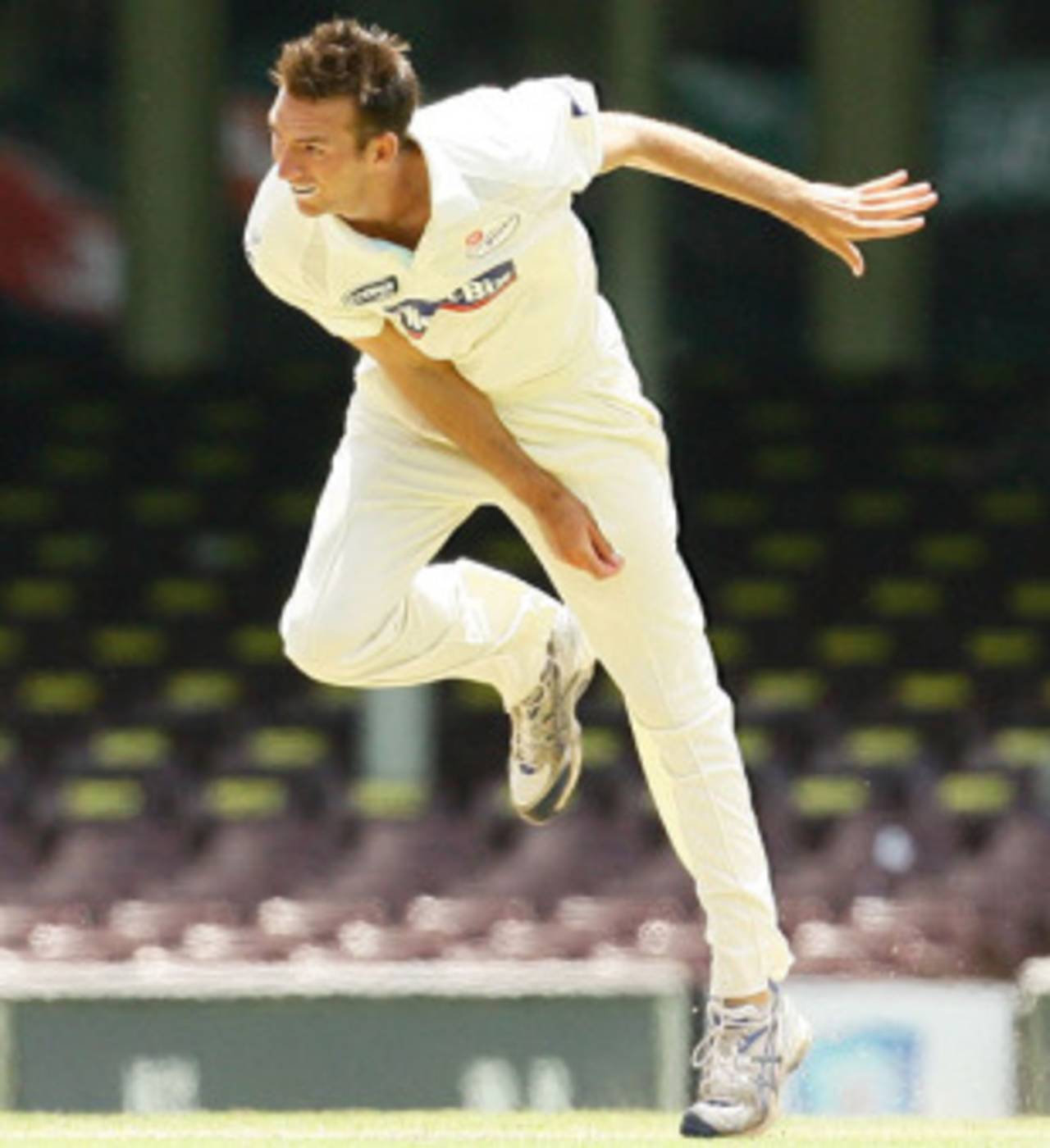Cut-price Copeland shows Tests are cheapened
Trent Copeland has emerged as a telling reminder of Test cricket's lowered place in Australian cricket's pay structure
Daniel Brettig
26-Jul-2011

Test match aspirant Trent Copeland will fly to Sri Lanka on a modest wage • Getty Images
Trent Copeland emerged as a telling reminder of Test cricket's lowered place in Australian cricket's pay structure as the selection chairman Andrew Hilditch complained the central contracts system was "not ideal".
Like Michael Beer and Nathan Lyon, Copeland earned Test selection for next month's tour of Sri Lanka from outside the list of 25 contracted players named by Hilditch last month. However as a medium-pace bowler equipped far better for the long forms of the game than the shorter ones, Copeland has been unable to join them in securing a Big Bash League Twenty20 contract.
This means he will fly to Sri Lanka on a middling state contract of around $75,000 a year plus his tour fees, a pittance next to some of the wages being earned by team-mates blessed with Cricket Australia, BBL and Indian Premier League deals.
Should he play in the series and the South African tour that follows it, Copeland will be upgraded to a CA deal, but his relatively modest means have provided an instant reminder of how little financial incentive there is left to aspire to a Test career, for all the talk about the lure of the baggy green not being diluted by T20 money.
None of Beer, Copeland and Lyon were completely lateral choices, but their "ranking" under CA's pay scales is severely weakened by the weighting given to limited-overs and T20 cricket. As such, none were deemed worthy of a contract, and Hilditch conceded the system was less than optimal for Test aspirants.
"Our priority is Test cricket and I'm sure the players' priority is Test cricket," Hilditch said. "That's the area where we've obviously fallen pretty poorly in the rankings and we've had the Ashes disappointment, so we're very much of the view that we have to get back to where we want to be in Test cricket.
"Because we rank three forms of the game… that's just the way the contracts came out. Copeland and Beer were very much in line for Test-match selection. It's really a totally different issue, the contract list, compared to the squad that we've picked for Sri Lanka."
When pressed to suggest a better system, Hilditch said it was not for him to decide, and reiterated that the limitations of the contract structure would not preclude the selectors from picking the teams they felt were the best to represent Australia in Tests.
"It's the system at the moment, but when we come down to pick the Test squad for Sri Lanka, I always knew there would be people from outside the system to be picked in that squad," Hilditch said. "It doesn't really affect the selection process at all.
"It is obviously difficult when you have three forms of the game. There's the potential to give 60 players a ranking in one form of the game. Obviously there's a lot of overlap and it doesn't work that way in reality, but the reality is a lot of players will get a ranking in one form of the game that won't get a contract, but when we come to pick the Australian side we'll pick the best team we can."
Australia's Test selections may not be clouded by the lack of money seemingly available for Test-match specialists, but the future of the Test team certainly will be if all the money open to aspirants is funnelled into T20. The Australian captain, Michael Clarke, observed as much on the occasion of the 2000th Test, contested between England and India at Lord's.
"Governing bodies must prioritise player performance and payment in Test cricket," Clarke told the Daily Telegraph. "The future of Test cricket relies on the investment in continuing to make it the pinnacle of the sport. "It is the toughest form of the game. It requires all the skills of the other two forms of the game, but over five days. The physical and mental intensity of a five-day Test makes Test cricket far and away the pinnacle of the game."
Daniel Brettig is an assistant editor at ESPNcricinfo